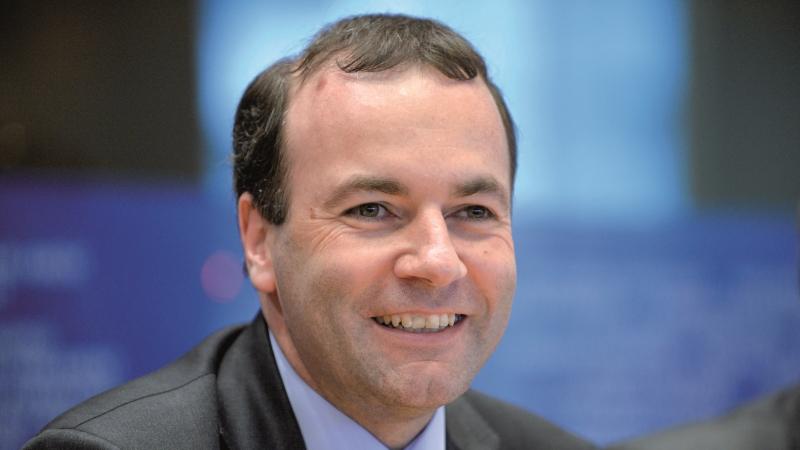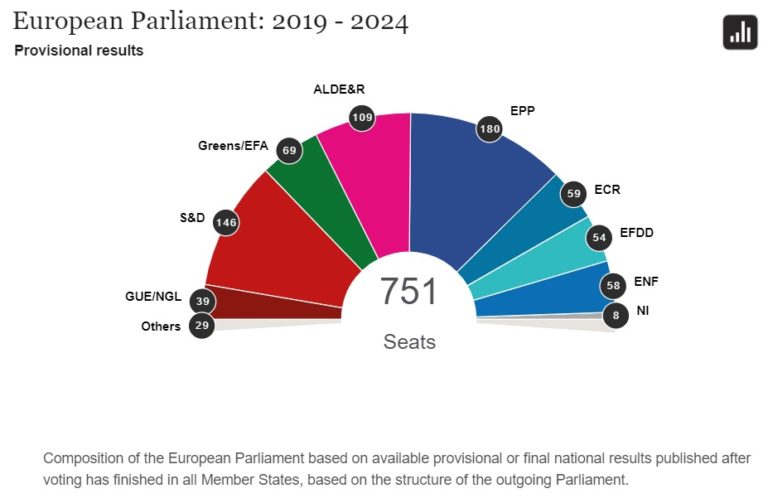Early European elections results showed a victory for Eurosceptic populists across Europe but the victory was not as large as predicted. Ecology was as big an issue as immigration, perhaps bigger, and the Greens scored big in Germany, France and wherever they ran. Establishment mainstream parties took a beating but, overall, pro-European parties successfully stood their ground. Among them Manfred Weber, leader of the center-right European People’s Party, EPP, the largest group in the European parliament, stands out. Election results, as now projected, strengthen his candidacy to succeed Juncker as President of the European Commission. If he plays it right.
And he has already started. On Sunday evening as the polls closed across Europe, Weber said that “from now on, those who want to have a strong European Union have to join forces.” He added that his party would not cooperate “with any party that doesn’t believe in the future of the European Union.”
Who is Manfred Weber? To answer that question, one of Impakter Italia team, Alessandro Magini, recently profiled Manfred Weber.
European elections: The protagonists – Manfred Weber
On 7 November, officially opening the European electoral competition, the European People’s Party of Manfred Weber met in Helsinki to choose its candidate (spitzenkandidat) for the presidency of the European Commission. Contending for the nomination were the German Manfred Weber and the Finnish Alexander Stubb. Despite playing away from home, Weber won a landslide victory, defeating Stubb with 492 votes in favor, against 127 for his rival.
A victory that was pre-announced since the German Weber enjoyed the support of eight heads of state, including German Chancellor Merkel and Hungarian Prime Minister Orban.
While Stubb expressed more progressive positions, declaring himself opposed to any agreement with the populist right, Weber’s candidacy represented the party’s more conservative and right wing. This must be read from a perspective that sees the EPP worried by the loss of consensus in favor of the populists supporting a Trumpian national sovereignty agenda.
An announced candidacy, therefore, which also represents a novelty in terms of political customs. If Weber were to win the elections, he would be the first president of the European Commission who has never held the position of head of state in his own country since 1985, or since the time of the French socialist Jacques Delors, excluding the brief parenthesis of the Spanish Marin.
Current EPP Leader – Future EU Commission President?
Manfred Weber was born in 1972 in Rottenburg an der Laaber, a small town in Bavaria, and began his political career in the Christian Social Union (CSU) youth movement; the CSU has governed the Land of Bavaria for over 50 years. At the 2003 elections for the Land, Weber, at 29, was the youngest elected deputy.
Since then his political career has been in constant ascent: Elected to the European Parliament in 2004 and reconfirmed in subsequent elections, he has climbed the EPP hierarchy thanks his ability to make agreements and constantly mediate between the various segments of the party, of which he became deputy leader in 2009 and leader of the whole group in 2014.
In Germany, the support of Merkel and the Christian Democratic Union (CDU) should be read as a concession to the CSU, a historical ally of the chancellor who had recently created many problems for the stability of the government. The interior minister Horst Seehofer, a member of Weber’s CSU, has been the object of strong internal debate because of his tough anti-immigration line, close to the Visegrad group.
In Italy, instead, Weber enjoys the full support of Forza Italia (rather than Salvini’s League), as recently underlined by a tweet from the president of the European Parliament Tajani. But he remains rather unknown in Italy, as shown by a recent Youtrend poll according to which only 2.5% of the interviewees knew the PPE candidate to the EU Commission. This is not much worse than the socialist Timmermans who is known by 4.3% of Italians.
If on the one hand Weber is a convinced European, against Brexit and a supporter of a stronger and more united Europe to face the challenges of globalization, on the other hand he is a conservative Catholic. His Catholicism – typical of CSU – makes him capable of dialogue with the most extreme right politicians. He is therefore a candidate for mediation, capable of uniting distant positions such as those of Orban and Merkel, chosen to try to stem the hemorrhage of votes towards the populist nationalists and eventually seek agreements with the latter if the elections were to confirm the advance of the Eurosceptic right.
Impakter Editorial Board note: Now we know the advances have been confirmed. The game is very much in Weber’s hands. But his party, the EPP was down to 180 MEPs from 217 according to the parliament’s calculations (it could lose another 13 MEPs if Hungary’s Fidesz leaves the party family). The next big bloc, the Socialists and Democrats are expected to be down to 145 from the 184 seats they had in 2014. In short, the EU Parliament coming out of the vote is far more fragmented. Manfred Weber would like to see an alliance between the EPP, Socialists, liberals and greens. In contrast, the Socialist leader and Dutch EU commissioner Frans Timmermans calls for a “progressive alliance” with liberals, the greens, the far-left and without the EPP. But that, for now, would not work, it adds up to less than half of the parliamentary seats. Which is why Weber insists: “No stable majority against the EPP is possible. My message is ‘join the EPP.”
Featured Image: Manfred Weber – from Impakter Italia’s article.











